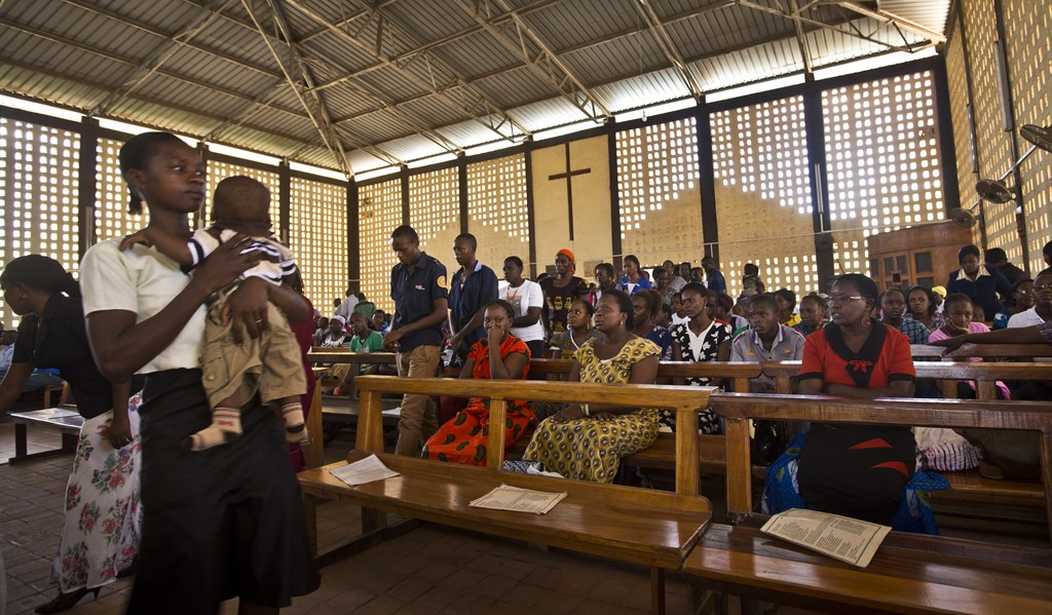Divisions among Christians are as old as Christianity itself. Sometimes they can help the church grow and develop — think about how the controversy over the distribution of food to the widows in Acts 6 led the early church to organize better, or how Paul and Barnabas’ parting over including John Mark doubled the missionary efforts.
More often, divisions can be harmful. I grew up in a dysfunctional church, and the splits that took place every couple of years hindered the church from growing like it could have. (I should add that it led to the founding of the church my family helped start, which I still call home, so it wasn’t all bad.)
Over the decades, we’ve seen entire denominations split over issues of theological and political liberalism. I grew up in the Christian Church quasi-denomination, and we know that the congregations that called themselves Christian Church (Disciples of Christ) were the more liberal churches. That division took years to develop but became official in 1968.
In 1973, the Presbyterian Church split over theological differences and social progressivism, which led to the more liberal Presbyterian Church USA and the more biblically faithful Presbyterian Church in America going their own direction. The leftward drift of the United Methodist Church led to the founding of the Global Methodist Church, which became official in 2022 and led nearly 4,500 congregations to join the new denomination.
Flashback: The United Methodist Church Chooses the World Over Truth
The most recent schism to make headlines is taking place in the Anglican Communion. Of course, we’ve seen how the Church of England has lurched to the left for years, from the 2003 appointment of openly gay Bishop Gene Robinson to the Episcopal Church in the U.S. to the recent installation of Sarah Mullally as Archbishop of Canterbury.
Mullally is a vocal supporter of gay marriage and abortion rights, and that has further alienated conservative congregations worldwide, but particularly in Africa and Asia. Her appointment led the Global Anglican Future Conference (Gafcon) to announce last week that it would not participate in Anglican organizations or events that the Church of England hosts.
Side note: Mullally was Bishop of London when she denied Calvin Robinson a curate because Robinson, a mixed-race man, refused to agree with Mullally, a white woman, that the Church of England was “structurally racist.”
Rev. Dr. Laurent Mbanda, the chairman of Gafcon’s Primates’ Council, issued a statement with the bold title “The Future Has Arrived.” In it, Mbanda writes that it’s time to reform the Anglican Communion (emphasis in the original).
The first Global Anglican Future Conference (GAFCON) gathered in 2008 in Jerusalem to prayerfully respond to the abandonment of the Scriptures by some of the most senior leaders of the Anglican Communion, and to seek their repentance.
In the absence of such repentance, we have been prayerfully advancing towards a future for faithful Anglicans, where the Bible is restored to the heart of the Communion.
Today, that future has arrived.
Mbanda lists eight points that Gafcon will undertake to ensure its adherence to scripture. I encourage you to read the whole statement to witness the boldness and faithfulness at play.
He concludes, “As has been the case from the very beginning, we have not left the Anglican Communion; we are the Anglican Communion.”
Flashback: Church of England Committee Wants to Apologize for Converting Africans to Christianity
Rev. Anthony Poggo, the general secretary of the Anglican Communion, issued a pastoral letter in response that basically amounted to “Can’t we all just get along?” Poggo pointed out that “The one Church is ever reforming, which means that no institution, meeting, network, or association of Christians is static.” That’s true, but that doesn’t change the truth of scripture or our faithfulness to it.
Faithful churches are growing because they cling to the truth of Christianity, while many Anglican churches in the UK and Episcopal congregations in the U.S. are dwindling as they rush headlong to the left. Gafcon congregations are choosing truth over trends, faithfulness over fashion, and loyalty over liberalism.
Editor's note: An earlier version of this article mixed up which Presbyterian denomination was conservative and which was liberal. We apologize to our readers for this error.










